Executive Interviews
Our Executive Interviews feature top leaders from across the disciplines that we specialise in, sharing their career advice and experience with candidates seeking success in those sectors.
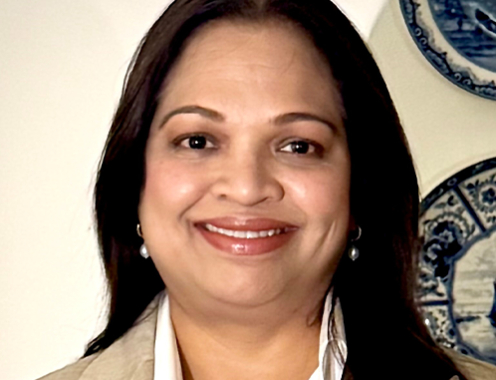
Anita Bhat-Zutshi - Former CFO, Ice Cream Business at Unilever
Anita Bhat-Zutshi is the former CFO, Ice Cream Business at Unilever in Rotterdam. During her career, she has spent over 25 years with the organization, having started out in Audit and Treasury.
Anita explains how she builds psychological safety in her team, shares the epiphany that drives her philosophy, and offers advice for women in senior Finance roles.
What have you learnt as a leader over the past 12 months?
The biggest learning is that I need to go to where people are in their thinking and not try to lift them to think more like me. Everyone has different starting points, different aspirations, and motivations and I should not just tolerate but truly embrace these differences.
My focus then shifted from, “Why are they not more like me?” to, “Strength lies in differences – not in similarities.” I started celebrating diversity of gender, thought, personality, etc. in my teams, actively seeking it.
I also shifted my leadership style from a 3D (direct, drive, deliver) approach to a 3E (envision, empower, energize) focus – a style I have used over the past few years as a global leader.
It’s important to nurture great talent density in the team and not have a cookie cutter approach based on your own self.
What’s your philosophy on team building, and how do you create an environment where individuals feel motivated and empowered to perform at their best?
I have led large, global teams for the past decade, and firmly believe that honesty and vulnerability promote trust, which - alongside diversity, inclusion, and psychological safety - builds high-performing teams.
As a leader, balancing empathy and drive with talent density, fostering honest yet constructive feedback is essential. I believe in psychological safety by encouraging diverse views, sharing both successes and failures equally, and seeking constructive feedback, including for myself.
I am often an open book, sharing my own challenges and learnings, which makes others feel comfortable doing the same. I make a point of giving my opinion last to ensure other team members can freely contribute; too often, leaders speak first, and through that set the tone of other responses, then we all lose out.
To me, diversity goes beyond gender and includes diversity of thought, leadership style, and personality among others. It's important to value different perspectives and support talent growth, even if it means letting key talent move on to better roles and different experiences, no matter how much you want to keep them.
I am proud of the teams I've built and am happiest when they thrive independently, occasionally remembering me on key occasions with a kind note or text. This, for me, signifies true leadership success.
What role does collaboration play in driving financial success? And how do you ensure Finance is seen as a strategic partner to other departments?
For Finance to be seen as a strategic partner, it must behave as one. For this to be true, there is an important shift from control and compliance to deep understanding of the business, strategy, and on what sits behind the numbers.
Finance touches all aspects of a business, so you must collaborate, constantly build your knowledge through others, understand the drivers behind each part of the business, be driven by value creation, and actively manage disruption to create sustainable value in the long term.
What is the biggest myth about your profession that you want to debunk?
A lot of people look at the role of a CFO as a dream role – which it is. Equally, a CFO role at whatever level is extremely demanding. There is a lot of blood, sweat, and sacrifices needed. At any CXO level, you need to have great passion, resilience, and tremendous energy to sustain not only your own motivation, but of those around you. This is especially true in the tougher times and there are a few of those! The number of hours per week or a work/family balance becomes irrelevant, to be honest – it’s a 24/7 role. Trust me!
Further, to be successful in these roles, it has nothing to do with your qualifications or what you have achieved – it’s about the future. You need to constantly learn, unlearn, relearn, and reinvent yourselves in the journey to get there and stay successful.
To debunk any myth about Finance as a profession – yes, maybe we love a spreadsheet, we love structure and process, but our value is so much more than that. Listen to your Finance partner, bring them in on your business strategy - they are your best friends!
What risks have you taken throughout your career and how did they help you get to the level you are at?
The most important risk I have taken is to be part of challenging assignments, chasing audacious goals, taking the unsexy career path - which naturally pushed me outside my comfort zone, giving me invaluable experience, while building self-awareness and self-confidence. With these diverse experiences under my belt, I feel confident taking on any task now; I know I will be able to see it through.
What was the most unexpected lesson you learned in your career so far?
In my mid-20s, as I was starting my career and married life, I was diagnosed with a chronic illness, which was devastating to me. I remember brooding, “why me?”, till I had an epiphany that thankfully it was me and not anyone else in my family. I had always struggled to find meaning in my existence as a middle child till then, but in that moment, I realized that my purpose was not to be entitled but to be in service. A philosophy that I live with to this day.
I always believe that I am in service of the business, my team, my friends and family - this guides my approach to work and life to this day.
If you could go back and give your younger self some career advice, what would it be?
I was a fearless girl. My mother nicknamed me after the first woman who fought for India’s independence – Rani of Jhansi. As a young girl, with the naivete of youth, I had strong courage of conviction with a desire for perfection, which made me very stubborn and fiercely independent, placing a lot of pressure on myself, especially as a young working mother.
In hindsight – with years of experience and some wisdom – I would like to tell that young girl that there was no need to be a super woman, to have the courage to stand up, with the wisdom to stand down. Life is all about striking a balance and interdependence.
As a female leader in a traditionally male-dominated space, how do you champion female empowerment in the workplace?
What initiatives have you led or supported to promote women in leadership roles?
As one of the few female Finance leaders in any room, I am acutely aware that I am in a unique position to actively change the status quo, and champion female empowerment and representation. These have always been close to my heart, and I do take this responsibility seriously.
- As a role model, I help women see the art of possible with my journey. I generously share my experiences including failures with them, helping them navigate similar challenges in their careers – learning from my experiences.
- As a sponsor, I have very often taken calculated risks on key female talent and have easily achieved 50% gender diversity in my leadership teams for the past ten years. These women leaders have thrived, been successful on their own, moving onto many CFO/leadership roles.
- As an active mentor and coach to many female leaders including outside of Finance, I make myself available when they reach out. This is my way of paying it forward.
- As a female representative around the table, my philosophy is to be the voice of reason and call out bias when I see it. I strongly believe we do not need gender quotas, but do need strong advocates and courageous leaders to uproot systemic and largely unconscious bias.
I’d like to also point out that at least two of my big career moves was enabled by two men, who saw the potential in me and enabled a level of flexibility at a time when it was very rare. So, everyone has potential to enable and uplift.
What is your top piece of advice for women pursuing a career in Finance?
Unlike Marketing or HR, which are more women centric, it is true Finance is a tough profession for women. This is reflected in the fact that women occupy less than 15% of CFO roles in top organizations in the world. It will take us more than a century to get gender parity.
In this context, my advice is for women who are in that top 15% already: Please actively lift other women, proactively mentor, coach and support them. We need to celebrate and advocate for our sisterhood, which will be the biggest gift we can give each other. I don’t see that happening often enough.
For all women in Finance: Believe in yourself, keep the fire of ambition burning, actively seek mentors and sponsors, learn the rules and play them well.
Who is the most inspiring person in business for you and why?
Indra Nooyi – former CEO of PepsiCo - has been a truly inspiring role model for me. Her extraordinary success becoming a global business leader of iconic organizations, delivering performance with purpose, while breaking the barriers of gender and race, and remaining true to her roots has been a source of deep inspiration.
I have watched many of her public interviews where she does not shy from sharing her vulnerabilities and the impact of her choices, which working women of color around the world like me can so relate to.
I recently finished reading her book, My Life in Full, which in my view is a must read for all working career-focused women. I hope I get the opportunity to meet her at least once in life.
What is the one book, podcast or external resource you would recommend to all?
I believe that we need to be the change that we want to see. I first read The 7 Habits of Highly Effective People in business school (30 years back), but its wisdom on self-development and leadership stays true to this day.
Recently, I came across America Ferrera’s TED Talk My identity is a superpower – not an obstacle – it’s a real tribute to embracing who you truly are. Its hugely moving and inspiring and there was so much that I could relate to. I would recommend it as a watch.
If leadership styles were ice cream flavors, which flavor best represents your leadership approach and why?
I believe in diversity and lots of inclusion – hence my ice cream flavor would be unique, bold, and innovative. Variety, as you know, is the spice of life!
What’s the last thing that made you smile?
Watching little kids perform makes me shed tears of joy with a smile. This happens every single time. There is something about their innocence, camaraderie, and earnestness to the performance at hand that brings back the purest of emotions. I love the feeling it evokes in me.
Thank you to Anita for speaking to Georgia Wright, Director in our Finance & Accountancy recruitment division in the Netherlands.
Views and opinions contained within our Executive Interviews are those of the interviewee and not views shared by EMEA Recruitment.
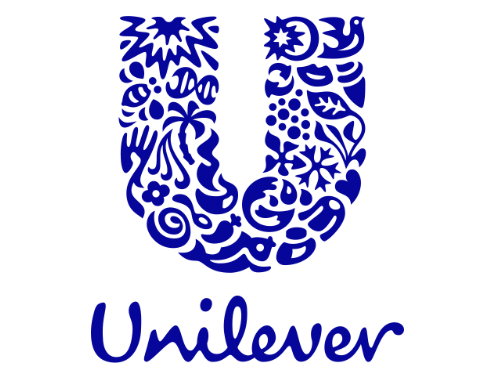
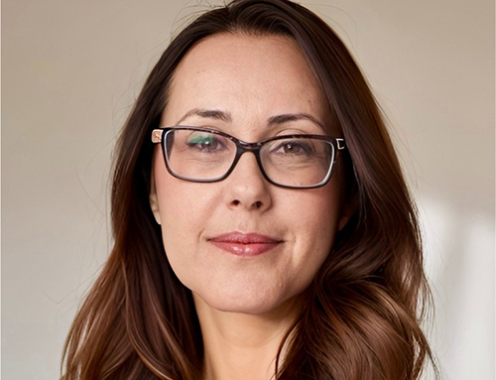
Inbal Orbach - Vice President, Global Head of FP&A at Lonza
Inbal Orbach is the Vice President, Global Head of FP&A at Lonza, where she leads financial strategy and execution for one of the world’s top suppliers to the pharmaceutical and biotechnology industries.
In this interview, Inbal discusses her approach to driving performance and innovation within her team, the role of AI alongside human expertise, and Lonza’s efforts to support women in Finance.
What are the key strategies you implement to drive performance within your FP&A team?
To drive performance, I set clear objectives aligned with the company's broader goals, maintaining a unified direction. Data-driven decision-making is central, supported by robust data analysis. Regular performance reviews help us stay on track and make necessary adjustments.
Leveraging the Lonza Engine enhances operational efficiency, strengthens customer proximity, and drives sustainable value creation. Maintaining close collaboration with the business ensures transparency, enabling swift risk identification and mitigation.
What performance metrics do you consider most critical for FP&A, and how do you ensure your team stays aligned with these metrics?
Critical metrics include budget variance, forecast accuracy, cost efficiency, and revenue growth.
To ensure alignment, I communicate these metrics clearly and integrate them into performance evaluations. Regular check-ins help track progress and maintain focus. Operational efficiency and customer proximity are key components of our performance framework.
How do you ensure effective collaboration between FP&A and other departments to support overall business performance?
Collaboration is fostered through regular interdepartmental meetings to discuss financial performance and upcoming projects. Open communication channels encourage transparency and information sharing. Integrating planning processes and forming cross-functional teams ensures diverse perspectives. The organizational structure, including Integrated Biologics and Advanced Synthesis, further enhances operational efficiency and customer proximity.
What initiatives do you have in place to develop and retain top talent within your FP&A team?
Talent development is a priority, achieved through professional training, mentorship, and career pathing. Recognizing outstanding performance is key, alongside offering hands-on learning experiences, such as job shadowing and complex projects.
Lonza’s Finance Academy provides a structured training calendar, a Finance Competency Framework, and easy access to training resources, ensuring clear career pathways and growth opportunities.
What future trends do you see in AI and machine learning in FP&A, and how are you preparing to leverage them?
AI’s potential in financial processes is actively explored through investments in advanced AI tools and team training. A commitment to innovation ensures staying ahead by continuously integrating emerging technologies.
Recent pilot programs have demonstrated a significant reduction in manual reporting efforts, allowing the team to focus on higher-value strategic activities.
How do you balance AI and machine learning with human expertise in FP&A?
AI excels in data processing and pattern recognition, while human expertise is essential for strategic decision-making. The team is trained to interpret AI-generated insights, ensuring accuracy and relevance.
Ethical considerations are paramount, and guidelines are established to maintain transparency and trust.
By combining AI-driven financial modeling with human judgment, we aim to improve forecasting precision while maintaining strategic oversight.
How do you foster a culture of innovation and continuous improvement within your FP&A team?
A culture of innovation is encouraged by promoting experimentation and learning from failures. Open idea forums and continuous learning opportunities keep the team updated on industry trends. Recognizing and rewarding innovative thinking is crucial. Innovation is embedded in strategic priorities to drive continuous improvement.
A recent initiative allowed team members to propose automation ideas, leading to the successful implementation of a new leadership performance dashboard, reducing slide preparation time, and allowing faster data and insights generation.
What role do mentorship and sponsorship play in advancing women's careers in Finance? Have you had mentors or sponsors who impacted your career?
Mentorship and sponsorship have provided me with guidance, advocacy, and opportunities. Offering the same support to others is a priority. Lonza promotes structured mentorship programs and diversity initiatives to promote career advancement for women in Finance.
I have personally benefited from a sponsor who advocated for my leadership development, which directly influenced my career progression.
How do you manage work-life balance, and what advice would you give to other women in Finance?
Work-life balance requires prioritization, time management, and setting boundaries. My advice is to prioritize wellbeing, seek support, and establish clear work-life boundaries.
One effective practice is leveraging technology to improve efficiency, allowing for better time management and ensuring critical tasks are completed within work hours.
Are there initiatives supporting women in Finance? Can you share some success stories?
Lonza runs several initiatives to support women in Finance, including mentorship programs, networking events, and diversity committees. These initiatives have enabled many women to advance to senior leadership, fostering inclusivity and collaboration within the organization. Our commitment remains strong in ensuring a supportive and equitable environment for all.
Thank you to Inbal for speaking to Meriel Graham, Director in our Finance & Accoutancy recruitment team in Switzerland.
Views and opinions contained within our Executive Interviews are those of the interviewee and not views shared by EMEA Recruitment.
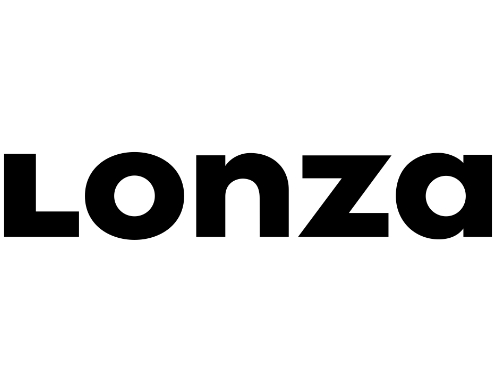
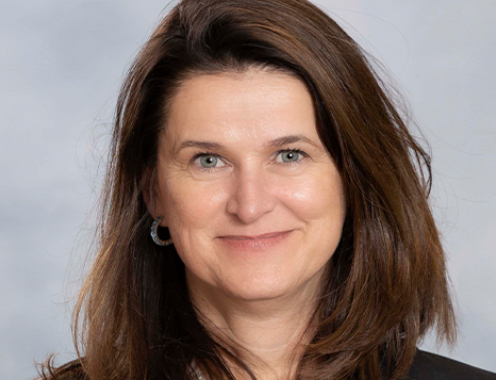
Marta Van Damme-Pilzys - Global Strategy Portfolio Execution Leader at Cargill
Marta Van Damme-Pilzys is the Global Strategy Portfolio Execution Leader at Cargill, based in Amsterdam.
Over a 24-year tenure at the international food corporation, Marta has successfully managed transformative process optimization initiatives to enhance efficiency and effectiveness. She’s also a member of topvrouwen.nl, an initiative to support greater diversity in Dutch boardrooms.
In your opinion, how can leaders create diverse teams?
Leaders can create diverse teams by hiring people with different and complementary skills.
Empower them to succeed and fail, as mistakes are learning opportunities. Be humble, open, and transparent. Treat everyone equally, but address underperformance promptly. Create a safe and enjoyable environment where people feel valued and can grow.
From your perspective, what opportunities does the Dutch business environment offer to employees at Cargill?
The Netherlands offers a variety of talents and innovative thinking. It's a great place for business due to clear regulations and a collaborative environment. The Dutch are creative problem-solvers, and the country is favourable for investment.
You’ve progressed at Cargill throughout 24 years. What risks have you taken to reach the level you’re at today?
Taking risks involves embracing change. Moving to the Netherlands was a bold move, especially with language barriers and managing an older team at the start of your career.
It's important to recognize your capabilities and take opportunities, even if they push you out of your comfort zone. Always be yourself and know yourself. Think big, start small, and execute fast is what keeps me moving forward!
You transitioned from Finance into a Transformation role with financial aspects. When did you decide to make that move and what was it like for you?
In 2014, one of our Managing Directors asked if I wanted to help drive Transformation. He saw my potential and believed in my capabilities. This opportunity - working with an external consultant - was a game-changer. It included many of hours of intense internal training, expanding my knowledge beyond Finance to the entire business.
Initially, I was insecure, but diving into the role helped me grow rapidly. This experience pushed me out of my comfort zone and allowed me to oversee Commercial, Procurement, and Production. It was a huge opportunity that connected my financial expertise with broader business insights.
Embrace such challenges - they are the key to growth and transformation.
How do you see the role of a global Transformation & Strategy leader changing with the advent of AI and automation?
AI and automation are revolutionizing how we analyze data and manage businesses. They help us identify issues and opportunities faster, bringing us closer to market trends.
While some jobs will be replaced, new roles will emerge to manage AI. Follow the innovation and adjust smartly and smoothly.
Investing in technology and upskilling employees is crucial. Embrace this change - it's the future, and it will make us more effective and innovative.
Sustainability is another hot topic. I’m interested to hear about the main challenges that Cargill faces regarding sustainability.
Cargill focuses on reducing its environmental footprint, investing in green energy, and ensuring ethical practices in its supply chain. Collaboration with our customers, farmers, and other companies and transparency are key to addressing sustainability challenges.
In your experience, how do you ensure that your strategic decision-making aligns with both the company's values and the market demands?
Align decisions with company values, such as feeding the world sustainably. Adjust the portfolio to meet the market needs by reducing sugar levels, as an example.
Strong values guide daily choices and ensure long-term success.
What are some of the main values that you share with the company?
At Cargill, our word is our bond. We put people first, embrace accountability, and foster a sense of ownership.
Cargill is integral to our daily life. You might not know, but you start and finish a day with Cargill (for example, the ingredients in your toothpaste). Being part of a private company that impacts the world so profoundly is truly inspiring.
*Please Note: Marta was the Global Strategy Portfolio Execution Leader at time of recording.
Thank you to Marta for speaking to Bradley Saywell, Consultant in our Finance & Accountancy recruitment division in the Netherlands.
Views and opinions contained within our Executive Interviews are those of the interviewee and not views shared by EMEA Recruitment.
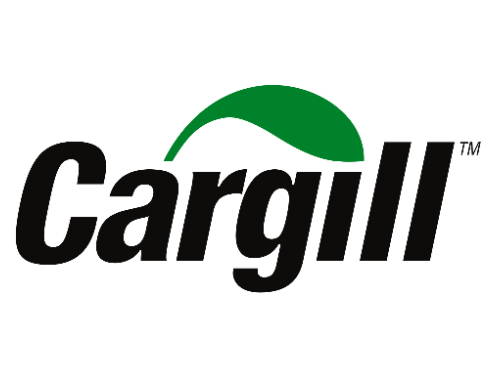
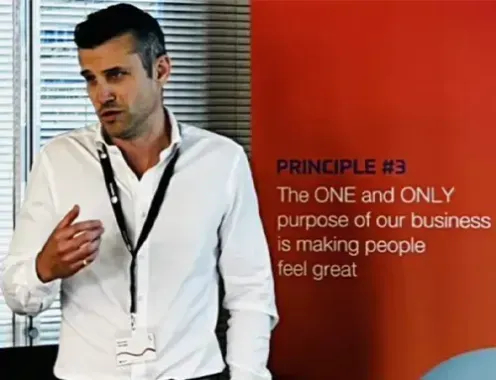
Hannes Wengle - Deputy Chief Procurement Officer at Selecta
Hannes Wengle is the Deputy Chief Procurement Officer at Selecta, a leading food technology and vending specialist headquartered in Switzerland. Hannes leads and drives the performance of 16 local Procurement departments across Europe while fostering high-level global interactions with A-brand suppliers.
In this interview, Hannes discusses the evolution of the Procurement function, along with the technical fundamentals, interpersonal skills, and mindset required to excel.
He also shares an insight into Selecta’s sustainability initiatives, the challenges ahead, and his approach to developing innovative and diverse teams.
What advice would you give to somebody starting in Procurement today?
Procurement has transformed dramatically over the past decade, evolving from a back-office cost-saving function into a strategic enabler of organizational success. Today, Procurement plays a critical role in ensuring competitiveness, sustainability, resilience, and adaptability in fast-changing environments. Supplier relationships have also shifted, focusing less on cost-cutting and more on building long-term, value-driven partnerships. With its growing influence, Procurement now offers exciting opportunities for growth and innovation, making it a compelling career choice.
For those considering starting in Procurement, a strong educational foundation is essential. The complexity of the field demands higher education - studying Economics is particularly relevant, though I’ve also seen professionals with Psychology backgrounds excel in Procurement.
Beyond academics, mastering the technical fundamentals is crucial: selecting suppliers, negotiating contracts, analyzing costs, and understanding industry dynamics. These are skills that can be taught and developed over time.
What’s harder to teach, however, is personality. Successful Procurement professionals are analytical, adaptable, and excellent communicators. They balance deep dives into data with high-pressure negotiations, thriving in the duality of precision and unpredictability. If this mix of technical mastery and interpersonal skills excites you, Procurement can be a highly rewarding career. But, if such contrasts feel overwhelming, it’s worth reflecting carefully before diving in.
What strategies do you use for developing innovative and diverse teams?
The most important factor in developing innovative and diverse teams is attracting the right people while actively minimizing biases during the hiring process. In my view, affinity bias is particularly critical to address, as it leads to overestimating candidates with similar backgrounds or interests. This bias can hinder diversity and innovation from the outset. Building a broad talent pool that includes individuals from diverse backgrounds, ethnicities, and experiences is essential to create a foundation for success.
However, recruitment is only part of the equation. Retaining top talent requires creating an environment where people can thrive. This means fostering a culture of continuous learning, development, and empowerment. While general theories about enrichment and empowerment are valuable, I believe the approach must always be tailored. Each individual has unique needs, and what motivates one person might not resonate with another. Leaders must deeply understand their teams, adapting to their dynamics and individual preferences.
By providing a positive, supportive environment where everyone feels valued and appreciated, leaders can not only enhance productivity but also build a sense of belonging. This reduces employee turnover and ensures the team remains engaged, innovative, and diverse.
What is the most unexpected lesson you have learned in your career so far?
In fact, I’d say the unexpected is the rule, not the exception. "Expect the unexpected" is a mindset that makes perfect sense when working in Procurement. Let me share a few examples:
- People and relationships matter more than processes. We tend to overestimate the importance of processes. During times of change, like the COVID-19 pandemic, a perfect process won’t secure your supply chain, but strong, trusted relationships with suppliers will.
- The value of frontline contact. It's easy to assume we know better from our positions high up in the company. What has always been inspiring, though, is regular communication with frontline workers. Their insights often bring fresh perspectives that help solve problems.
- The courage to simplify. We often feel that complexity is a necessity. What I’ve learned, however, is that a simpler approach can often be just as effective and much easier to implement.
- Rethinking the established. It’s common to overvalue existing practices, but I’ve found that challenging legacy processes and sometimes disrupting established ways of working can lead to remarkable improvements.
Starting out in Procurement can be tough, especially when you’re new to the field. It’s not easy to challenge the status quo when you’re just starting. Newcomers often bring fresh ideas and mindsets that can be incredibly valuable. They might see areas for improvement that have gone unnoticed by others who’ve been entrenched in the same way of doing things for years. It’s important to remember that just because something has worked for the last decade doesn’t mean it couldn’t work better with a new approach.
These lessons have been key to my growth in Procurement. It’s about staying open to change, learning from others, and having the courage to question and improve processes. That mindset has shaped my career and continues to drive me forward.
What risks have you taken throughout your career and how did they help you get to the level you are at?
Throughout my career, I’ve taken several risks that have helped shape my approach and contributed to my success. One of the earliest risks I took was shifting my perspective on supplier relationships. I recognized that long-term partnerships with suppliers create far more value than simply negotiating price and quality or switching suppliers every year. At the time, the value of flexibility wasn’t as clear as the benefits of these strategic partnerships. This perspective was not always appreciated, and I faced opposition, but I stood firm, despite some doubts. In hindsight, that decision proved valuable, particularly when securing the supply chain in unforeseen situations.
Another risk I took was challenging legacy processes. While I always carefully assess whether change is worth the resistance and potential risks, in most cases, it has paid off. I’ve encouraged stakeholders to question the status quo, asking, “Why is this done the way it is?” This simple question often sparks innovation and drives efficiency.
More recently, embracing data-driven decision-making has been a significant shift in my career. The rise of big data and AI presents challenges but also huge opportunities. For example, defining assortments using data within seconds, rather than relying on opinions or gut instinct, was initially daunting. However, I view this as an opportunity, provided we balance technology with human insight. It’s essential to maintain a man-in-the-loop approach, ensuring that decisions are not driven solely by historical data but by a combination of both data and expertise.
What are the key challenges Selecta faces around sustainability?
Carbon accounting is undoubtedly a significant challenge in our sustainability efforts. We are constantly navigating evolving regulations and staying ahead of trends in carbon commitments and sustainability reporting frameworks. Carbon reduction remains a critical focus, requiring substantial resources: financial investment, skilled expertise, and well-established processes that meet the standards of our leading clients.
Another challenge is staying at the forefront of sustainability innovation. Initiatives like sustainability-as-a-service and Selecta Eco Joy have been steps in the right direction, but we must continue exploring new approaches to ensure we remain ahead of the curve. The goal is not just compliance but creating long-term, unique value for our clients.
The entire ESG (Environmental, Social, and Governance) landscape is becoming more critical than ever, particularly within Procurement. As laws tighten, the role of Procurement professionals in driving ESG initiatives will continue to grow, and it’s no longer just an option - it’s a requirement. Procurement must take the lead in these areas, ensuring that sustainability is embedded into every aspect of the procurement process. This is a key area where Procurement can have a direct impact on both compliance and business value. As ESG becomes a central argument for sales and business success, it’s crucial that Procurement is fully aligned and proactive in embracing these responsibilities.
Personally, I have a strong passion for sustainability, and I firmly believe that Procurement is in a unique position to drive meaningful change in this space.
What are the current recruitment challenges that you face?
Attracting top talent is one of the key challenges we face today. It requires a deep understanding of what the younger generation seeks from an employer and a company.
Salary is no longer the sole focus - it’s no longer about just negotiating a number. Instead, candidates today are more interested in flexibility, such as reducing their workload, working from different locations, and achieving a better work-life balance. While salary remains important to cover basic needs, the primary conversations now center around finding meaningful work and a clear sense of purpose in their roles. The company’s mission and values must align with the expectations of this emerging workforce.
Providing clear opportunities for career growth and professional development is also crucial. This can include access to training programs, mentorship, and well-defined career progression pathways. In addition, flexibility in work arrangements has become a significant priority, with top talent placing high value on flexible schedules that allow them to balance personal and professional commitments. Furthermore, having a strong employer brand is essential. Effectively communicating the company’s values, culture, and opportunities positions the organization as an employer of choice for talented individuals.
What advice would you give to someone moving to Switzerland?
Rule number one – you need to love chocolate and cheese! As a Swiss native who has lived and worked abroad in various countries, I’ve experienced many cultures and believe the key to thriving in Switzerland is to understand and appreciate its positives.
Switzerland is clean, well-organized, structured, efficient, and safe. Contrary to some stereotypes, it’s also open to new experiences and people.
Most Swiss people speak excellent English, which helps ease communication. However, it’s important to earn this openness by respecting local cultural norms. Swiss culture values punctuality, privacy, organization, and adherence to rules. Embracing these aspects will help you integrate more smoothly.
In my view, Switzerland is a wonderful country for you and your loved ones, offering a high quality of life and a welcoming environment for those who appreciate its unique charm.
Thank you to Hannes for speaking to George Weemes, Associate Director in our Procurement & Supply Chain recruitment team in Switzerland.
Views and opinions contained within our Executive Interviews are those of the interviewee and not views shared by EMEA Recruitment.
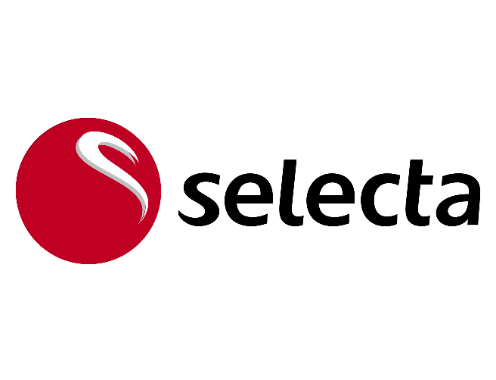
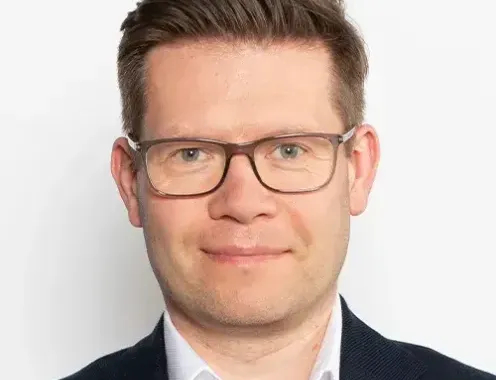
Marcin Miskiewicz - Global FP&A Director at FrieslandCampina
Marcin Miskiewicz is the Global FP&A Director at FrieslandCampina in Amersfoort, the Netherlands. He’s been with the business for over five years, after spending ten years at Danone in multiple Finance roles, and several years with Royal Numico.
Marcin shares advice for someone moving into a global team, the benefits of a career in FMCG, and how to become a responsible leader.
What would be your advice for someone looking to move from a regional to a global role within their organization?
I've made that step at least twice during my career. It’s about recalibrating and developing a global mindset; extending your interest in economic trends and regulations in geo-politics from your region to something broader.
That also requires agility and an openness to learn. Don't assume you know everything, because you don’t; you know the reality to which you’ve been exposed - especially if you lived in a certain geography for three decades. You need to be humble and open to new views, approaches, and business practices.
Equally important is the soft side of management. Build your cross-cultural competencies, as you’ll cooperate with people from different cultures and parts of the world. That requires a different sensitivity, maybe emotional intelligence.
There’s this great book called The Culture Map by Erin Meyer, which has grown in popularity recently. I regret that I have only just read it - 15 or 20 years ago would have been more ideal. It’s a great help for anyone making the move. It’s about not making assumptions and highlighting that even someone very close to you might be very different. You need to be sensitive and try to manage this element.
What is also useful in this journey - even before you make this step - is to involve yourself in global projects. This is how you can learn differences and obtain different perspectives without immediately making the big jump.
For those working within larger international organizations, it’s also about building your network and finding those who will support and advise you during this journey.
To get those roles, you’ve got to put yourself in a place where you're either being asked to do them or you’re asking to do them. Is it a combination of the two that’s given you the opportunity to take on these responsibilities?
Absolutely. It goes both ways. You need to make yourself visible. Of course, having a sponsor is one thing, but showing your face or making yourself known and expressing your interest in certain moves is the second thing.
You can be super good and the best in your region, but if people at headquarters don't know you, it’s very difficult.
What challenges await your business and how do you plan to overcome them?
That’s a very broad question. Being in Finance and FP&A, you see a lot of what is happening in the business across geographies and business lines.
At FrieslandCampina, we are in transition. In late 2023, once the new CEO joined the company, we restructured how we viewed the business with the establishment of seven business groups, each of which has their own distinctive mission.
Refocusing these business groups on their specific missions around growth seems obvious, but we refocused our goals around the performance triangle, which is quite a difficult balance to strike. It’s about winning in the market, becoming more competitive, and establishing our market share position. The second point is around margin expansion, improving our profitability. At the top of the triangle is generating cash while doing it. It seems obvious, but it was good to take a moment and refocus on these elements.
Another element linked to that is looking very critically at our cost structure and implementing savings programs focused on the supply chain. On the other hand, we scaled down our overhead base to improve our margins. That’s the internal part.
Externally, with the significant inflationary pressures experienced over the last few years, we are seeing consumers moving towards private labels, abandoning big brands, and putting pressure on market share. This is a big challenge. In the end, we are cooperative. We are owned by farmers and our role is to valorize milk and increase its value. If the demand and volume is slowing down, we need to manage this as the milk is coming our way 24 hours a day.
In this environment, innovation and sustainability is very important, because that's how you should drive value for the customer and your shareholders. Again, Finance is critical in making the right decisions, because innovation is good for the business, but they need to be innovations with the right P&L – that’s where we play the role of guardian.
One more general challenge – and, of course, you know much more about this than me - is the continuous pressure on recruiting and maintaining talent. It’s not new, but it's still very relevant, especially in attractive markets like the Netherlands, where we have a significant footprint. So, that's something that we need to manage by keeping an eye on motivation and offer People growth opportunities.
We are an attractive employer and have been established for a long time in a very interesting industry. But, every day, we need to remind ourselves that we need to take care of our people.
That leads on to your history in FMCG. It would be good to hear what you love about the industry.
I have to admit, I probably ended up in FMCG by luck. At the beginning of your career, you are usually unsure of what it is you want and where you want to go. Then you end up somewhere and suddenly you find it very interesting, and you stay there.
FMCG is one of the most volatile environments you can be in; consumer preferences change very often, competition evolves, and you’re fighting for market share. For Finance, that also poses a challenge, because we really need to be on top of everyday developments. Planning and forecasting are important, but it’s not easy.
However, you can also deliver a lot of value, because a large element of FMCG is this connection to the customer - making things very tangible. It's very different than working for a bank, because here you can see the products on the shelf.
A similar theme is the impact on the environment. FMCG companies produce packaging and plastic pollution - that’s tangible. In a way, it’s inspiring when you work on the business case as a Finance professional – we’re not only going to save money by streamlining our packaging, but we can remove tonnes of plastic from the environment.
The last element - and I'm beneficiary of it – is the opportunities for development and growth, especially if you work in a big multi-national, global organization. With the speed of change, you can learn a lot in a fast amount of time, develop, and gain opportunities. I find that very interesting, because you don’t do the same thing for a long period of time.
That slightly links to the first question, too, where we discussed the opportunity to meet other people and see other cultures to obtain a global view.
Of course, we need to be prepared for this fast-paced change. But, if you accept that and are ready to be part of this journey, it might offer very nice opportunities.
With large-scale organizations, often it takes a lot of time for decision making, as many people must agree. Do you feel that your organization and previous organizations can work at that speed?
On one side, the closer to the market and the firing line you are, the more speed there is. At the beginning of my career, suddenly one afternoon we learned that the competition was launching a new product line, so we had a meeting until late in the evening to sort it out and come up with ideas, models, etc.
The fact is, you grow from the market; the slower it seems to be because of the wider view, the more complexity you need to react and deal with. So, it’s a different type of pressure.
You've led global teams. What is the key to successful leadership?
I try to manage people, lead people, and inspire people. One side of that is about being authentic and open about what goes well and the challenges, while also encouraging this openness within the team. Be honest. That's one thing I have learned over time.
It's quite interesting when I reflect on this, because coming from a country that doesn’t have a very diverse society, I think diversity within the team is really important. It makes teams better overall by bringing an enrichment in different perspectives and contexts, which also helps the business. Of course, there are different aspects to diversity - cultural backgrounds, gender, etc.
It’s a fact that women have better emotional intelligence than men and are more sensitive to certain topics. You need those perspectives in decision making.
Secondly, when I’m managing teams through empowerment, much of it is about accountability. Some call it freedom within the frame, but it's all about giving people room to work on their topics, supporting them, but at the same time expecting the results.
It’s not about avoiding making mistakes; it's about being responsible for what you are doing. It's fine if you don't know how to get there - we can discuss it, and I can help you. Show you want to get there and be open about the issues and how I can help. It can sometimes be a difficult balancing act, especially if you’re working under pressure or there is a crisis. However, I strongly believe that’s the way to grow and how to become inspired. That is what I’m trying to pass on to my team and the principles I try to apply.
Furthermore, it’s a journey of learning for each manager and leader. You make mistakes and you try to learn from them. You evolve as both a human being and a leader over time based on the experiences you take and the mistakes you make. It’s not a given recipe.
The people you manage also evolve, as you have new generations entering the workforce with a different approach to life, and expectations of what they want from a company and a manager. You need to recalibrate slightly, as what was important when I was 25 or 30 is different for those today. That’s another challenge.
I’d love to hear more about the executive leadership program you decided to do at the London Business School.
It was a joint program with FrieslandCampina and LBS for leadership teams. Every year, a group of around 20 people joins the program. It was a bit unfortunate, as it was in the middle of COVID, so it was carried out online and I missed out on some of the experience.
Nevertheless, I found it very interesting, as it's a blend of theory, knowledge, and insights from both academics and practitioners. There was individual coaching, peer-to-peer coaching, and peer-to-peer feedback. It included a project work experiment, which you discussed with your colleagues.
The program was focused on adopting a growth mindset and how it helps you succeed. Factors within that touched on adaptability/openness to change, approaches to problem-solving and innovation in your work, and resilience to volatility and uncertainty.
It helped me as a manager and a leader to identify and realize your team’s capabilities.
For myself, it's a very useful framework to challenge myself - sometimes, it’s okay not to know, just go and try, and maybe it will work or not. A part of the program was the experimentation and explaining the concept of innovation. This is not what we are taught in big multi-national companies; usually, it’s about managing risk and being safe, as mistakes can be costly. But this program was the other way around and encouraged you to try again, try new things, and experiment. That’s what I took away from the program.
The growth mindset piece is interesting, because we did a virtual event, not long after COVID, with speakers from Netflix, Heineken, and Danone talking on this subject from different viewpoints.
So, the final question. What is your favourite motto or quote?
I have two quotes about the same thing. There’s a discussion on whether it comes from Albert Einstein or it’s a paraphrase, but it’s: “Everything should be made as simple as possible, but not simpler.”
Then there’s a similar quote from Elon Musk - of course, a very controversial person, but someone who is changing the world. He said: “The best part is no part. The best process is no process. It weighs nothing, costs nothing, can’t go wrong.”
What these quotes highlight is the concept of simplicity. I believe that, sometimes, we complicate our lives a bit too much. Again, it is a bit philosophical, but if you translate the work environment in Finance, we often develop very sophisticated concepts, which are not very efficient and create complexity.
Complexity is a cost, and at times we do it very opportunistically, because we don’t want to go and fix the basics; we just put one patch on another patch and things become big and complex. That sometimes happens on purpose or because we have a job to maintain, solve, and manage this complexity. It's always good to look at the bigger picture. Ask yourself what your long-term view is on what you want to achieve. Challenge your thinking and ask yourself: Do I need this complexity, or can it be simplified? If so, put the effort in to do it.
A very concrete example - very famous in FMCG - is the number of SKUs you have (the single product combinations). I remember the discussion from 20 years ago and still hear it today - marketers adding the SKU lines, and Supply Chain trying to minimize them, as sometimes the cost level, marginal gain of your market share, and profitability is not worth it. You need to look at the total cost and total view. So, maybe not the most popular topic, but it is something we all can ask ourselves in a job or company, but also in society where things get increasingly complex each day.
Thank you to Marcin for speaking to Hannah Mallia, Director in our Finance & Accountancy recruitment team in the Netherlands.
Views and opinions contained within our Executive Interviews are those of the interviewee and not views shared by EMEA Recruitment.
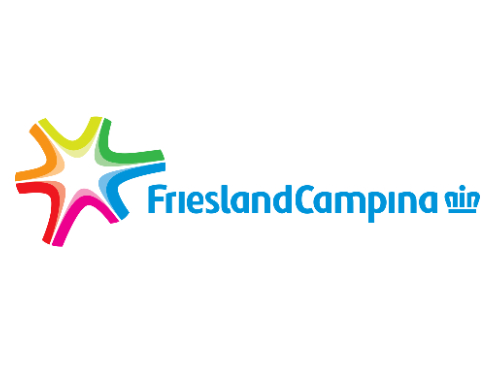

Merve Macit - Country Head of HR for Switzerland & Sweden at GSK
Merve Macit is the Country Head of HR for Switzerland & Sweden at GSK, a pharmaceutical manufacturing company uniting science, technology, and talent to combat diseases.
Speaking to Drew Larcombe, Merve shares her passion for Human Resources, her journey with GSK, and her opinions on why HR needs to evolve from a reactive and transactional role into a proactive, consultative partner.
Why did you choose a career in Human Resources?
Coming from business school, I could have chosen any function within a company to work in. Ultimately, I chose HR because I have always been passionate about helping others realize their potential - the coaching element - which HR allows me to do on a larger scale.
HR is unique, as you can influence both company culture and business success by aligning People strategies to the broader organizational goals.
It’s also interesting, as there’s complexity in measuring certain KPIs and behaviours; it's not always straightforward to see the impact of your actions in a short timeframe. I found that quite exciting because it makes HR a field with many opportunities for creative solutions to make a significant impact, requiring you to think outside the box.
You started your career at GSK in the Future Leaders Programme. How did the rotations within the scheme shape your career path and inform your views on HR strategies?
I had four rotations within three years during the programme, and moved around every nine or ten months, making it quite compact.
It was really transformative, as I was exposed to the full spectrum of HR functions including business partnering, Center of Excellence, and HR operations, all at local, regional, and global levels.
Additionally, I had the opportunity to gain direct business experience through a rotation outside of HR. It’s not every day that you can decide that you’re interested in Marketing and Consumer Healthcare and go and spend nine months there. So, it was great to have that playground time, especially when I was first dabbling my toes into the corporate world.
Each rotation was like a new lens, helping me shape my unique identity as a strategic HR leader. I got to work across different areas, making me a more holistic HR professional. It also enabled me to connect the dots between employee engagement, talent, strategy, and business outcomes, as I got to tap into all those different areas, being in the shoes of the business.
Looking back, I'm glad that I started my career as part of the programme. It was a great luxury to explore your career development and interests in a stretching and supportive environment.
How did you adapt your HR strategies to navigate cultural and regulatory differences across diverse regions?
I can comfortably answer this question. After having worked in six different countries, I learned that adapting HR strategies across diverse regions requires a blend of flexibility and respect for local regulations and cultural nuances - it's finding that balance.
Earlier on in my career, I learned how to do this and the importance of listening and observing, especially when entering a new cultural context, as a one-size-fits-all approach doesn't work in HR. There are local nuances in communication, work, and expectations.
Additionally, cultural nuances don't only change across different geographies, as one would expect, but also within the same country. There are different nuances and subcultures specific to different teams.
Even when I was assigned to a new business in the same country, I would need to start from scratch and just observe. By actively taking time to diagnose the cultural context, building trust and connections with my stakeholders, and involving the leaders and employee feedback in the diagnosis process and strategy design, I have been able to create relevant HR solutions that resonate across regions. So, you have that balance between global consistency and local adaptability.
We've previously discussed how to unlock the true potential of HR business partnering. You have partnered globally with businesses in R&D, pharma, commercial, and consumer healthcare. Can you share your views on how to unlock true potential?
What I'm going to say is not rocket science. I think most of my HR colleagues would agree that, to truly maximize our impact, HR needs to evolve from a reactive and transactional role into a proactive, consultative partner.
For me, that means embedding myself with the business, working directly alongside my leadership team to anticipate their needs and coach them through change, rather than responding to the needs when they occur. It's also about being data-driven and business-focused, understanding the different unique drivers and gaps within each function, and knowing the people well.
I always look back and ask myself: Is this how I feel the situation is right now? If it's not, I need to do something.
A very simple visualization that resonates with me is being at the table with the business from start to finish and we're all speaking the same language. For me, that checks a lot of the boxes in how I need to be feeling; if I'm not there with the business to plan for the future from the start, I'm not fully leveraging the potential of my role.
By deeply integrating and engaging in even the most basic version of strategic workforce planning, it can still drive meaningful outcomes for the business.
To relate this to your journey, would you say the key to your career thus far has been to constantly assess how you can directly add value to the business?
Absolutely. As I said, I see HR not only as a support function, but as an enabler of business success. What I've always been trying to think about is how HR can address the different challenges, whether it's improving a talent retention plan across multiple countries, supporting our organizational change, or just driving engagement.
This approach of constantly assessing what we can do better and how we can make things work together has helped me prioritize initiatives with the most direct impact, ensuring that our HR work aligns with business objectives and delivers measurable results.
However, there are challenges. We can't always assume that the business immediately recognizes the value that a strategic HR partner can bring. So, the key thing I've actively worked on the most was how to get that buy-in from the business. Sometimes this requires demonstrating this value over time through the impact of strategic HR interventions and planning.
Here’s a very simple example: a talent review and a succession planning discussion may initially seem like a routine activity to a leader, until one day we have an urgent need to fill a key position. We're able to leverage the succession plans we put in place to strategically fill these gaps to ensure business continuity, because we're building these people when we had that buy, borrow, build strategy. This proves to the business the importance and impact of proactive HR strategies. That for me has always been the moment I come in - how can I get the buy-in from the business so they can help me do my job and their jobs better?
Lastly, it's crucial that the business owns and drives the pre-work and outcomes of such people and culture discussions; if leaders don't hold themselves accountable for knowing their people and understanding their future capability and resourcing needs, HR processes will only be a tick-in-the-box activity, and it won't go any further. So, I believe effective HR requires partnership and accountability for the business to truly add value – the first challenge basically begins there: How do you get the buy-in?
Broadening out from business partnering specifically, in your opinion, how should HR be viewed by an organization as a broader function?
Of course, as a broader function, when you look at the different types of roles within the HR model, it may vary slightly. Holistically, you may focus more on HR partners or business partners ultimately, because they're the ones that create the bridge between the business and the other functions. HR partners should be viewed as strategic partners, working alongside the business to align People strategies with business objectives to drive performance and culture.
Once the leadership team or an organization view HR as an integral part of its success journey and include HR in these strategic discussions, they can be more proactive, as opposed to reactive in the way they manage change and ensure agility to be future proof.
What is your advice for somebody wanting to explore a career in HR?
It’s very important to take those opportunities that allow you to get close to business, whether it's job shadowing, gaining exposure, or just listening.
You can add more value in HR if you thoroughly understand who you're serving. It goes back to the same story if you're working in Marketing or Sales - you need to know your customers and those you're serving. In HR, our customers are the employees and the function. So, it's really knowing your customer base, and understanding and learning about that business so it can add more relevance, and you can speak the same language at the table.
Thank you Merve for speaking to Drew Larcombe in our Human Resources recruitment team in Switzerland.
Views and opinions contained within our Executive Interviews are those of the interviewee and not views shared by EMEA Recruitment.
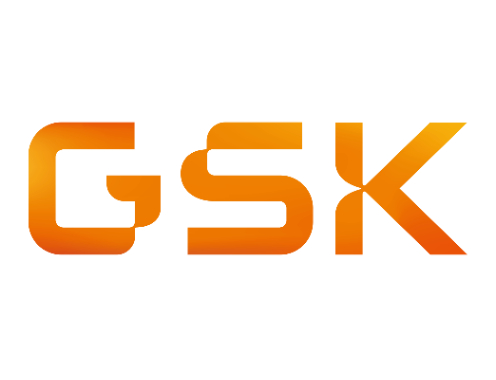







You can also use your social account to sign in. First you need to:
Accept Terms & Conditions And Privacy Policy